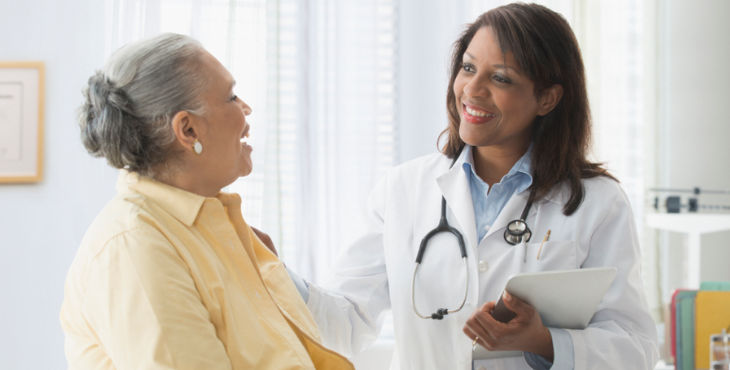
About Continence Disorders
Urinary incontinence, or accidental urine release, is a common condition that can cause inconvenient and embarrassing problems. If untreated, it can lead to related problems, such as irritated or infected skin. Continence disorders can be symptoms of underlying medical conditions requiring expert diagnosis.
If you experience incontinence, a urology specialist at Spartanburg Regional Healthcare System can identify the cause of your condition. At Spartanburg Regional, you’ll receive compassionate evaluation and treatment from experienced urologists. We offer the latest and most effective therapies tailored to the unique needs of men and women.
Types of Continence Disorders
Continence disorders are common in men and women of all ages. Urologists at Spartanburg Regional treat these and other continence disorders, including combined conditions:
- Stress incontinence – Conditions such as abnormal bladder position or muscle weakness can cause stress incontinence. Sneezing, coughing, exercise and physical triggers can result in small urine leaks from the bladder.
- Urge incontinence or overactive bladder – Symptoms include a strong or sudden need to urinate. Causes can include bladder disorders, diabetes, kidney stones, tumors and certain medications.
- Functional incontinence – Individuals with certain physical or mental health challenges may have trouble getting to a urinal or toilet in time to avoid an accident.
- Overflow incontinence – A bladder that does not empty properly and is prone to frequent small volume leaks.
- Mixed incontinence – Any combination of the above.
Urodynamic Diagnostic Testing
Urodynamic tests examine how well your bladder, sphincter muscles and urethra (urinary tube) hold and fully release urine. Your urologist can identify blocked tubes or other problems such as involuntary muscle contractions.
Urodynamic testing can help identify the source of symptoms such as:
- Chronic urinary tract infections
- Frequent urination
- Incontinence
- Pain when urinating
- Problems emptying your bladder completely
- Problems starting a urine stream
- Sudden, strong urge to urinate
Urodynamic Tests
Your doctor will choose urodynamics based on your symptoms and type of incontinence. This helps to identify the types of incontinence a patient is experiencing. Urodynamics consists of:
- Uroflowmetry – Measures how much urine you release and the flow rate, or how fast urine comes out
- Cystometry – Shows how much your bladder can hold, how much pressure builds up inside your bladder as it stores urine, and how full it is when you feel the urge to urinate.
Incontinence Treatment Options
Spartanburg Regional urologists use these and other therapies to treat incontinence:
- Biofeedback – You learn how to exercise and strengthen targeted pelvic and abdominal muscles using electronic signals.
- Bulking Injections – Your doctor injects collagen-based implants that bulk up tissues around the urethra to help stop leaks.
- InterStim Device - An implantable device that sends mild electrical pulses to the sacral nerves to reduce symptoms of bladder control problems.
- Pelvic Floor Therapy - Research-based treatments that include physical and occupational therapy.
- Pessary care for women – Care providers insert a removable medical device into the vagina which supports and tightens pelvic muscles to treat urinary incontinence.
- Posterior Tibial Nerve Stimulation (PTNS) - A type of neuromodulation therapy that delivers harmless electrical impulses to nerves to modify the way they work. With PTNS, the goal is to stimulate the tibial nerve, which leads to the sacral nerve, which controls the bladder, sphincter and pelvic floor muscles.
- Surgical procedures – Options include artificial urinary sphincter (AUS), sling, or bladder-neck implants to prevent leakage.











